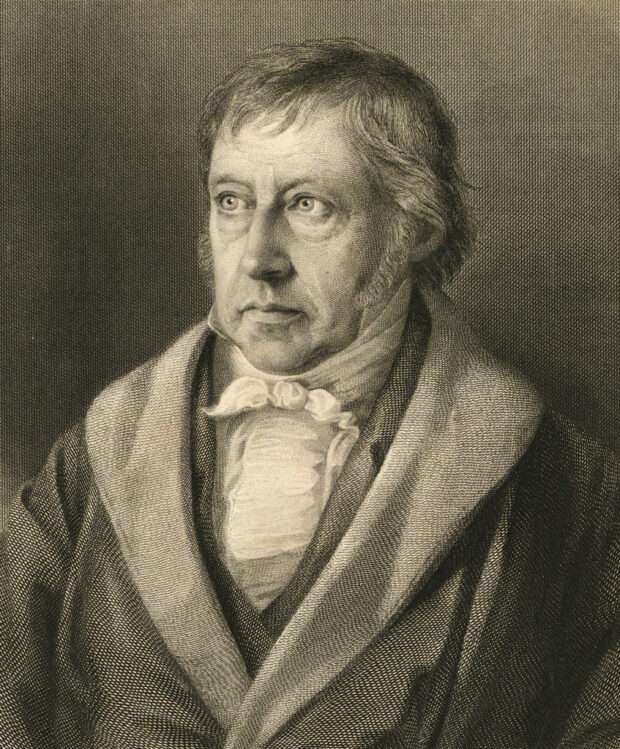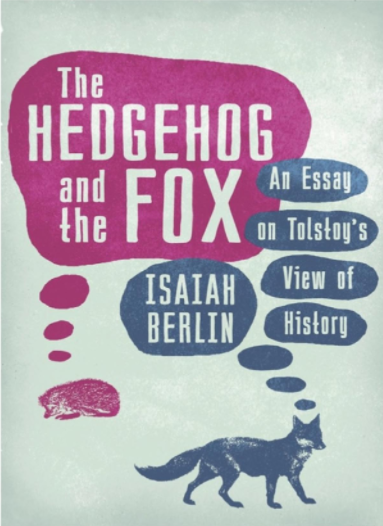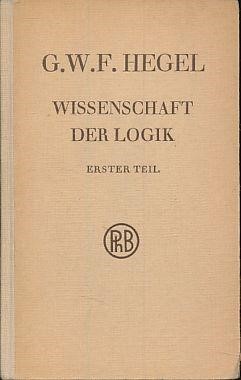Hegel’s Messiness and Metaphilosophy
The origins of Hegel’s writing of the Phenomenology of Spirit (henceforth Phenomenology) is apparently a stuff of legend. Hegel wrote a large chunk of the main texts before adding an “Introduction” and a “Preface” two years later. This resulted in relatively messy texts which led some scholars to interpret the Phenomenology as a palimpsest. Most famously, the German philosopher, Rudolf Haym, deconstructed that text as a combination of two texts, “one overlaid on the other with no internal principle of order” (Pippin, 1993). Critics of Hegel claim that the textual messiness of Hegel proves his thoughts juvenile and therefore, undeserving of our attention. The early Analytic Philosophers were customers of such views and in the Derek Jarman film Wittgenstein, the Austrian philosopher, played by Karl Johnson, claims that he would go mad (or crazy) if he were to read Hegel. A scene with comedic purport, no doubt, but also one with a grain of historical truth and understanding.
On the other hand, others make a lighter claim of Hegel’s messiness. Their interpretations are more sympathetic to the internal, philosophical motivations of Hegel. In particular, they stress that Hegel began the book with a more theoretical focus but could not contain his excitement with the potential of the application of geist to the realm of human relationship and everyday life.
In Poggeler’s account, it was when actually writing the chapter on Reason that Hegel realized the implications of his own earlier argument that the whole position or stance of “Consciousness” had been overcome or superseded (Pippin, 1993).
Therefore, being a philosopher with a bestriding focus on movement and an almost antagonistic drive towards stasis, it is evident that Hegel would allow his thoughts to run astray and lead them as far as they can, without restraint. Evidently, this also means that as readers, we are led farther astray into a realm of the indecipherable or unknowable. However, if Hegel was so incomprehensible and if his views were those of a madman, it would be retrospectively futile for philosophers to harp on them even till now, where Hegelian thoughts have seen a renaissance- especially in the Pittsburg Neo-Hegelianism of Robert Brandom and John McDowell. Thus, the question arises: What do we make of the vastly different interpretations of Hegelian thought? Are they purely messy unknowns? Or are they the work of a genius?

Hegel: Fox or Hedgehog
Published in 1953, The Hedgehog and the Fox is political theorist Isaiah Berlin’s most popular work with the public and contains some tokens of wisdom into the million-dollar question of whether Hegel’s thoughts are worth knowing or not. Berlin divides thinkers since time immemorial into two different categories: The Hedgehogs who view the world through the lens of a single, defining idea and the fox who views the world through multiple varieties of experiences and whodo not think that the world can be encapsulated within one genus of an idea. In the former category, Berlin puts Plato, Hegel, Nietzsche and Proust among others. In the latter category, he puts Aristotle, Montaigne, James Joyce etc. While Berlin is right in concluding that Hegel is largely a Fox, this, however, flattens the diversity of interpretations about Hegel. For sure, the intellectual milieu of his time meant that most people, especially his contemporaries like Fichteand Schelling originated from a particular strand of idea, namely Idealism. (In fact, when Hegel first published the Phenomenology, he had to convince many that his ideas were not the branch of Idealism that Germany’s intellectual climate was entrenched in at that time. In particular, he had to convince many that his was not a rehash of Schelling’s own views.) However, Hegel, although a Fox by nature, was I believe, similar to Hacker’s characterization of Wittgenstein, a Hedgehog by conviction. This means that while he looked at the world through his lens of the Dialectic or his scientific speculative logic, the multiplicity inherent in the world as it is meant that this framework has to undergo multiple permutations to fit the chaos within the world. Therefore, Hegel was not an intransigent and myopic thinker, but one whotried to encompass the diversity of phenomenon through a constantly changing dialectic. As mentioned above, movement is Hegel’s motif and stasis his die-hard enemy. It is noted that Hegel could be seen as a relativist given the almost historical and social constructivist implications of his views, but this is a topic for another time.
What does this tell us about Hegel’s thoughts? It is fair to conclude that Hegel was an ambitious thinker whose messiness arose out of necessity. Realising the infinite combinations of the world and its phenomena and dying to pull them into his own point of view, he tried his best to consolidate them in the Phenomenology. The end result might have been a painful eyesore for readers, but immensely rewarding for those who remain interested in making past its messiness.
Hegel’s Metaphilosophy
Another interesting question is: What can Hegel’s apparent messiness tell us about his views towards philosophy? In other words, what was Hegel’s conception of Philosophy? In the Encyclopedia of Logic, Hegel claims:
[a]part from their interdependence and organic union, the truths of philosophy are valueless, and must then be treated as baseless hypotheses, or personal convictions’ (EL, Section 14, P. 20)
In this regard, Hegel seems to resemble Wittgenstein a great deal, especially the early Wittgenstein who claims that tautologies and contradictions are senseless given that the former says nothing about the world and the latter is plain false! If Hegel indeed holds the truth of Philosophy as valueless or “personal convictions”, it could imply that Hegel would treat Philosophy as a discursive endeavour to seek meaning in the world amidst all the antinomies, rather than universal truths. Hence, Philosophy is in line with our inherent nature to seek meaning in our finite lives. The Absolute Knowing is the infinite of which we characterize via the different finite elements in our lives – religion, social relationships, our recognition of objects and other self-conscious subjects. Through these characterisations, we gain some form of knowledge or in the case of theology, comfort. There is barely any universal truth to seek, but perspectives to hold. On a concessionary note however, truth may come about in the validity of one’s way of seeing, and therefore, it is crucial to fix the way we see the world in order to attain the Absolute.
The goal, absolute knowledge, or spirit that knows itself as spirit, has for its path the recollection of the spirits as they are within themselves and as they accomplish the organization of their realm (Inwood, Phenomenology of Spirit, P. 321, 2018).
In this sense, Hegel can be said to possess a therapeutic view of Philosophy. Philosophy consists in the resolution of the confused manner with which we see the world. Hegel would claim that to uncover the mess of the world, we must first uncover the mess of our perspectives. However, even after we uncover the mess of our perspectives, we could soon realise that times have changed for geist is a locomotive force that never stops. Once again, stasis is Hegel’s die-hard enemy. At the same time, Philosophy should focus on broad abstractions, such as the idea of the Dialectic (commonly known as the thesis-antithesis-synthesis relationship). Meanwhile, although Hegel claims that is no “unreachable, transcendental beyond” (Carlston, 2007, P. 393), his conception of Philosophy seems to necessitate a reaching out towards the infinite to make sense of the finite. In essence, Philosophy is a meaning-seeking activity, after all, and what is life but meaning-seeking?
By: Cheong Kwang Aik Eldrick, ReadNUS Events Team member


